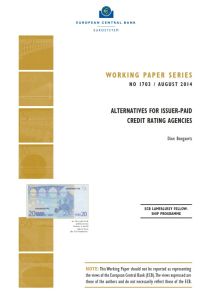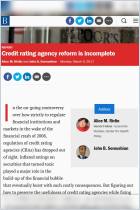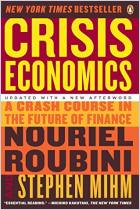Join getAbstract to access the summary!

Join getAbstract to access the summary!
Dion Bongaerts
Alternatives for Issuer-Paid Credit Rating Agencies
ECB, 2014
What's inside?
Innovative research points out the flaws of proposed alternatives to issuer-paid credit ratings.
Recommendation
Imagine paying someone to rate you and then expecting their evaluation to be entirely objective. As inane as it sounds, that’s the current setup between issuers and the credit rating agencies that assign those all-important letter grades to structured securities. There ought to be a better way, but – as economist Dion Bongaerts points out in his erudite analysis – alternatives may not be as cost-effective or competitive as the existing issuer-paid system. getAbstract recommends this seminal report to investors, issuers and analysts involved in assessing securities risk.
Summary
About the Author
Dion Bongaerts is an associate professor of finance at Erasmus University’s Rotterdam School of Management.




















Comment on this summary